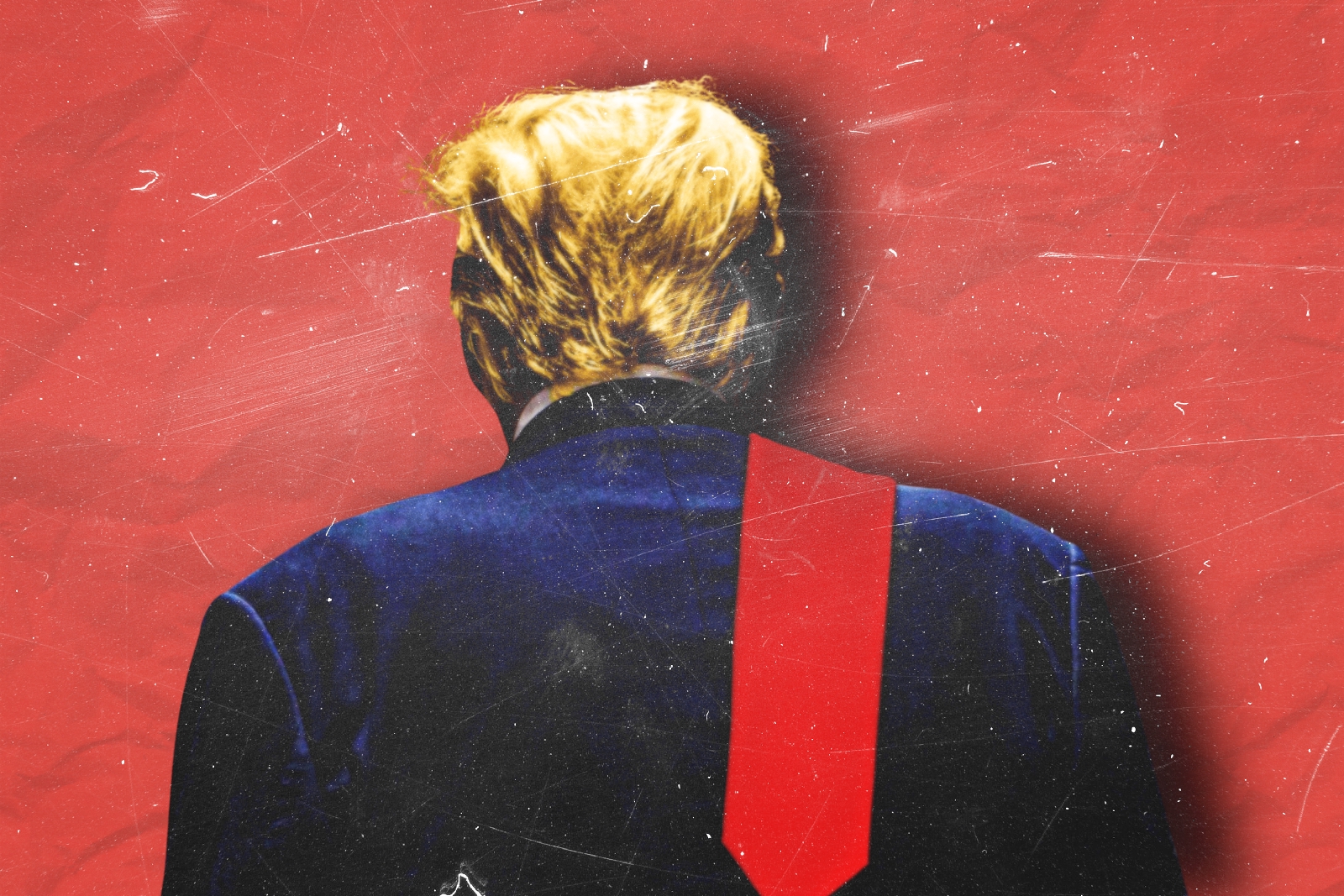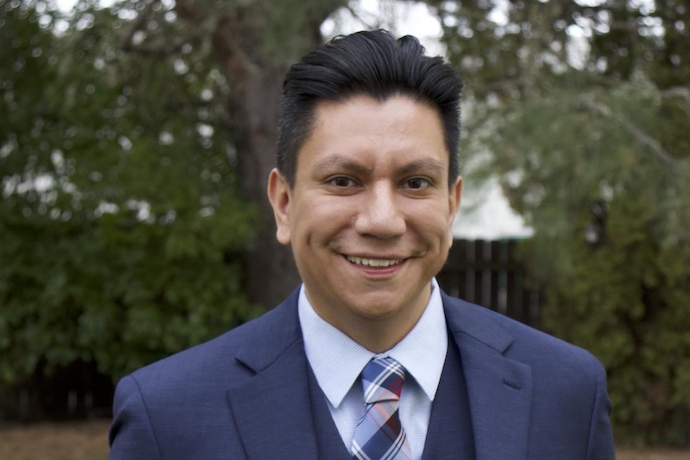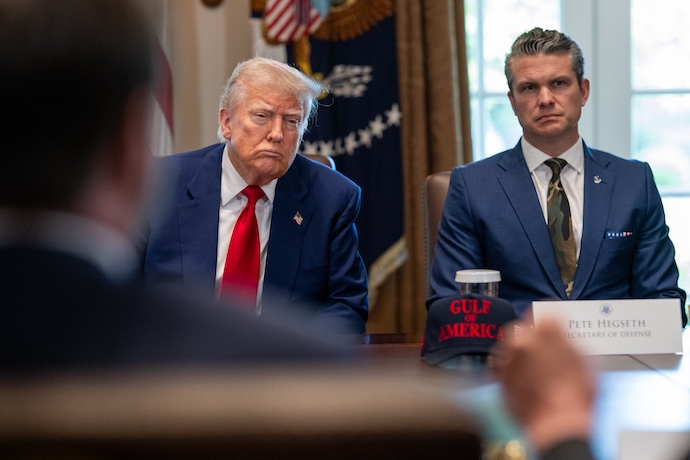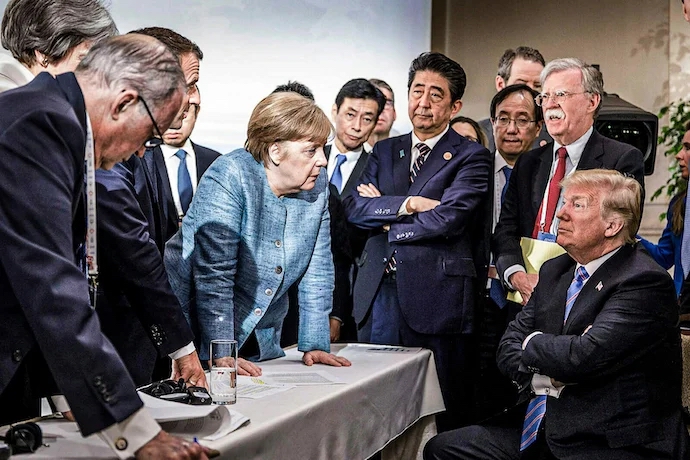
How America’s Allies are Watching it Fall Behind
George Carrillo is the co-founder and CEO of the Hispanic Construction Council (HCC), an organization dedicated to advancing Hispanic professionals in the construction industry through workforce development, advocacy, and access to business resources. A U.S. Marine Corps veteran and former sheriff’s deputy who specialized in child and domestic abuse cases, Carrillo went on to serve as Oregon’s Director of Social Determinants of Health. His career—bridging frontline service, community advocacy, and senior policymaking—offers a rare and layered vantage point on the intersections of labor, public health, economic equity, and national security.
Carrillo brings a resolutely mission-driven approach to public service. His work highlights the structural forces that shape opportunities in America, including racial and economic disparities, fragmented public systems, and the often-overlooked consequences of policy decisions on marginalized communities. Whether in the context of health equity or workforce inclusion, Carrillo consistently centers the need for strategic coordination and the empowerment of underserved populations to build societal resilience.
In our conversation, Carrillo offers a pointed critique of the Trump administration’s politicization of national security—specifically, the replacement of experienced National Security Council officials with loyalists. He warns that this approach weakens interagency coordination, erodes diplomatic continuity, and undermines public safety. Beyond the personnel shifts, Carrillo draws attention to deeper systemic damage: cratering morale among career civil servants, diminishing institutional accountability, and the normalization of authoritarian posturing in democratic governance.
At the same time, Carrillo is not without examples of what principled leadership can look like. He praises countries such as Canada for their commitment to international cooperation and civic integrity. Rooted in a belief that service should reflect enduring national values, Carrillo often returns to the words of John F. Kennedy as a compass point. For him, public service is not simply a job—it is a lifelong commitment to equity, dignity, and national integrity.
Taken together, Carrillo’s experiences—as a Marine, a law enforcement officer, a state policymaker, and a civic leader—form a holistic understanding of how democratic institutions succeed or falter. His insights offer a sobering, urgent, but ultimately hopeful vision for public service at a time when its very foundations are under strain.
 Scott Douglas Jacobsen: Thank you for joining me today. So, what are the immediate strategic risks of replacing seasoned National Security Council officials with political loyalists?
Scott Douglas Jacobsen: Thank you for joining me today. So, what are the immediate strategic risks of replacing seasoned National Security Council officials with political loyalists?
George Carrillo: Yes. Particularly concerning is that national security and foreign policy decisions require continuity, expertise, and coordination across agencies. When these roles are filled by political appointees with limited relevant experience, as in certain instances during the Trump administration, it can undermine the national security strategy.
National security is inherently complex. Effective operations require collaboration between federal agencies, such as the FBI, CIA, Department of Defense, and the Department of State. These entities must coordinate intelligence gathering, operational logistics, and diplomatic communication, often in rapidly changing environments.
You need individuals with operational, diplomatic, or military experience who understand interagency processes and can act with precision and foresight. Appointing individuals without such knowledge, including some with media or partisan political backgrounds, introduces strategic risks. For example, some NSC appointees under Trump, such as political operatives and media personalities, drew criticism for lacking relevant expertise.
Recent reports from within the Department of Defence indicate ongoing concerns about leadership vacancies and policy instability. Such disarray can have real implications for defense readiness and diplomatic positioning.
This trend represents a significant risk to national safety. Leadership choices at the federal level can have a direct impact on Americans’ security. This was evident during the Trump administration, which saw high turnover in national security roles and tensions with career officials. There is concern that a second Trump term or similar leadership style would repeat these patterns.
This political oscillation between administrations and parties should not interfere with the integrity of the executive agencies. Regardless of whether a Democrat or Republican is in office, key national security positions should be filled by individuals with demonstrated qualifications and leadership capacity.
These agencies, particularly those involved in defense and intelligence, require professionals who can lead under pressure and possess a deep understanding of the mission. The national defense relies on structured, multi-agency collaboration. When politically driven change management interrupts that structure, it can compromise the effectiveness of entire operations.
Having worked in government myself, I’ve seen that every time a new administration enters—whether at the state or federal level—there’s often significant disruption. This constant churn undermines stability, and with instability comes a loss of institutional credibility.
Jacobsen: Given the volatility of today’s international order—with recurring crises and sudden geopolitical disruptions—how does a diminished level of institutional competence hinder our ability to adapt and respond swiftly? In what ways does this erosion of expertise slow down decision-making and make those responses less effective?
Carrillo: It opens us up to attacks—whether on foreign soil or at home. The lack of cooperation and the breakdown in intelligence gathering severely limit our ability to defend ourselves against future threats.
Trump’s selections for cabinet positions and national defense leadership are highly disarrayed. The individuals hired under Peter Hegseth—his pick for Secretary of Defense—raise significant concerns. There is an absolute lack of clarity and coordination, making us vulnerable to exploitation.
If we are attacked overseas, we could face a difficult situation. The question becomes: How are we going to respond? Is the intelligence we are gathering credible? Do we have the mobility and logistical readiness to mount a proportionate and timely response? These are the uncertainties we are dealing with.
Jacobsen: When institutional competence erodes, intelligence failures aren’t just more likely—they become more dangerous. In your view, what are the most critical intelligence gaps that are likely to widen? While lowered competence can be discussed in broad strokes, it often takes on specific shapes. Where do you see the most acute vulnerabilities forming—particularly in areas where the American public could face the greatest risk?
Carrillo: One significant risk is our current understanding of Russia’s threat, particularly to European nations, and how that threat could directly impact the United States.
Another is our relations with Arab countries. What Trump is doing now is deeply concerning. He has accepted gifts from foreign nations, which raises questions about the ethics of those exchanges and how they might entangle him or align him with specific actors in the Middle East. That compromises our credibility and complicates our diplomatic relationships.
And then there’s the threat that the American people often do not see: Who is planning an attack on the United States right now? We know that plans are constantly being developed against us globally. Are we properly allocating resources to get ahead of those threats? Many of us, including myself, do not have confidence that the current leadership is truthful or transparent about what is happening domestically and abroad.

Jacobsen: What are the implications for NATO? The European Union seems to be taking more assertive steps toward military and defensive independence from the United States, even within NATO member countries. What are the consequences of the deeply rooted intelligence, defense, and military ties among NATO countries?
Carrillo: You can see it on their faces whenever Trump talks—NATO allies are visibly concerned.
I agree with the president on a few points, such as the expectation that all NATO countries should contribute their fair share financially. That is a legitimate discussion. However, the alliance goes far beyond finances. NATO’s core tenets include intelligence sharing, operational coordination, and a collective commitment to defend one another against shared threats. Those require mutual trust and strategic stability.
Currently, I want to believe that the United States will continue to stand by its NATO partners and that our commitment will be guided more by principle than by dollars and cents. But with this administration, it is hard to predict. What NATO needs now is to keep moving forward with unity and purpose, regardless of the unpredictable nature of U.S. leadership.
NATO needs to demonstrate, especially within Europe, that it will not allow Vladimir Putin to continue acting as the aggressor, seizing territory from Ukraine. The burden is also on the United States to determine how we will participate. Will we stand by our oldest and most reliable NATO partners, or will we retreat and try to avoid conflict, which often only delays and worsens future crises?
What I see in President Trump is the repetition of past mistakes. We are reliving the same missteps that led to greater global instability, similar to the hesitation that preceded the United States’ entry into World War II. Many historians argue that had we joined sooner, the war would have ended faster with fewer casualties.
I also see shades of Richard Nixon’s approach—this idea of isolating ourselves while trying to posture as dominant. The result is a looming disaster regarding NATO solidarity and military readiness as we weaken our alliances through trade wars, aggressive rhetoric, and a general shift toward authoritarian-style leadership.
He operates under the mentality, “We’re the United States—no one can touch us.” That is arrogant. I do not think our NATO allies, nor should they, appreciate it. I believe Europe will need to respond with strength and signal that there is new leadership in the free world, possibly emerging from within Europe itself.
Ideally, the United States should remain the leader of the free world, but currently, we are not demonstrating a presence that inspires trust or confidence.
Jacobsen: While attending the 69th Commission on the Status of Women at UN Headquarters in New York, what struck me wasn’t just what the United States said—but what it didn’t. On American soil, the most revealing insights came not from official remarks but from informal conversations. I met a group of Canadians—each of us had arrived independently—and we found ourselves voicing the same unease: “Are we safe here?” That question lingered, even for me. I later spoke with three women—two African, one a Muslim Canadian—and each shared legitimate concerns about personal safety while in the U.S.
That, I think, is telling. My second key takeaway was about how the world views the United States. Increasingly, the global community is no longer seeking a hegemon. There is a growing recognition of America’s duality—its strengths and its profound flaws. Rather than a rigid top-down leader, people see the U.S. more like a windbreaker goose in a V-formation: not commanding from above, but guiding from within. Yet under the current administration, there’s a sense that the lead goose is drifting to the rear while Europe is quietly taking the front—particularly on issues like human rights and moral leadership within their respective spheres.
Given all this, what’s your sense of how Americans see the world right now? Do they recognize this perceptual shift from abroad, or are they still imagining themselves in the lead?
Carrillo: It depends on who you ask, to be honest.
From a global perspective, the United States is not currently well-regarded; however, this depends on the context.
What worries me most is the way we are forming relationships right now with authoritarian leaders like Vladimir Putin and Kim Jong-Un. That signals a troubling shift in values and alliances. It alienates our traditional partners and undermines the global trust that the United States once commanded.
We seem to speak nicely about authoritarian leaders while speaking terribly about our democratic allies. That is deeply concerning—not just for Americans but the world. When the so-called leaders of the free world appear to be cozying up to autocrats, it sends the wrong message.
I did not necessarily agree with the previous approach, which avoided dialogue altogether. We should continuously pursue conversation and bring people to the table. However, I do not believe Trump’s approach is the right one. It is a snowball effect: now, he is changing how we engage with foreign partners and talk about foundational values like human rights and dignity.
At the same time, domestically, using the phrase “diversity, equity, and inclusion (DEI)” is suddenly seen as negative. So the question becomes: “What do we stand for as a country anymore?” We are losing sight of our core American identity.
Jacobsen: Canada?
Carrillo: Yes—Canada. I appreciate the current prime minister’s approach. It is professional but firm. His recent response to President Trump was a good example of maintaining dignity while showing strength. That kind of leadership earns respect.
Many may consider Canada to be the most stable and respectable leader when people think of North America today. Canadians know how to represent themselves and foster authentic partnerships. Meanwhile, the U.S. can come off as arrogant, as though having the biggest economy or the strongest military entitles us to dominate.
But every great nation in history has eventually crumbled. George Carlin once joked, “Because you have the most flavours of Rice-A-Roni doesn’t mean you’re the greatest.” Exactly.
That is how I feel as an American. I can only imagine how others around the globe now perceive us.
When I served in the military, people genuinely saw America as a beacon of hope. I do not think that perception holds in the same way anymore.
Jacobsen: What words come to mind when you think about the current makeup of the administration? I am trying to remember the Japanese term for the “front face” a group shows to the public.
Carrillo: You might think of tatemae—the public face, as opposed to honne, the private truth.
In any political system, yes, there will be internal disagreements. However, just as in a family, those discussions should occur behind closed doors. You have media relations and public events to present a unified front because you represent millions. It is not just politics—it is diplomacy and responsibility.
As for the second Trump administration, the words that come to mind are rebellious and vindictive. That perception stems not only from Trump’s mugshot following his criminal conviction but also from the language he uses, like discussing the military toward domestic protests or threatening political opponents.
These are dangerous narratives in a democratic society. This increasingly feels like a revenge tour—not a campaign rooted in service or vision. One of the most important values instilled in the military is the concept of accountability.

Jacobsen: We’ve seen cases where Signal groups of prominent journalists and publishers coordinate the release of classified or sensitive material to the public—and in many instances, there appears to be little to no accountability. Misleading statements are sometimes made in advance. And then, once the facts emerge, no one is held responsible. The issue simply fades from view, swept under the rug.
Contrast that with the military context. As you know, U.S. service members operate under a dual legal system: civilian law and the Uniform Code of Military Justice (UCMJ). The UCMJ tends to be far less lenient—particularly in a country like the United States, where the legal system is already highly punitive. If a service member breaks the law, they can face consequences under both frameworks.
So what would happen if a higher-ranking officer—say, a major or above—were to violate the law? How would that accountability process unfold in the military, and how does it compare to the virtual impunity we often see in civilian or media settings?
Carrillo: You’re right. In the military, there’s a higher standard, period. And because that standard is higher, if you make a mistake, especially as a ranking officer, you are held accountable under the UCMJ. The system does not spare you. It is intended to maintain discipline, order, and trust within the chain of command. You can lose your rank and pension and even face imprisonment. There is absolute and enforceable accountability.
What we see now in the civilian sphere, particularly among political appointees and cabinet-level officials, is that they are not held to the same level of accountability. In most cases, the worst that happens is dismissal or quietly resigning.
However, there has been virtually no accountability system in the Trump era, not even for Trump himself as Commander-in-Chief. That is where the Supreme Court got it wrong, especially in its recent ruling that a sitting president cannot be prosecuted for actions taken while in office. Trump has interpreted that as a blank check to do whatever he wants, unconstrained.
Now, he governs almost entirely by executive order. Even when those actions violate the Constitution, they become a matter of legal debate rather than immediate consequences. And in that legal gray zone, no one can stop him in real-time. There’s no enforcement mechanism.
Take the case of Kilmar Abrego Garcia, an undocumented immigrant who was deported. A federal court ordered the administration to bring him back, and Trump’s team ignored the ruling. There has been no consequence for that defiance. Nothing could be done.
We are in a constitutional crisis, even though the administration may deny it. We are allowing a sitting president to violate the Constitution he swore to defend. The judiciary’s failure to enforce clear limits has created a precedent of unchecked executive power.
Jacobsen: How does all this impact the morale and retention of career national security professionals?
Carrillo: Right now, morale is incredibly low. There has been significant turnover, and what is particularly disturbing is the number of positions being cut, especially within our national security infrastructure. And interestingly, these cuts are being made across all agencies.
They’re trying to funnel more money into certain agencies, but many career professionals realize it is time to retire. If you are not politically aligned with the president, you likely will not have a job—you will be dismissed.
This is happening across the government. The people doing the real work—career civil servants—have continuously operated independently of partisan politics. I recall being in public service: it didn’t matter who was president. We never talked about politics. We focused on the mission and the job at hand.
But now, regardless of job performance, people are targeted for their political affiliations. That is not how a professional, nonpartisan civil service should function. Dismissing people based on party loyalty rather than merit threatens the integrity of government institutions.
Jacobsen: Let’s close on a lighter note. What are some of your favourite presidential quotes?
Carrillo: From Trump?
Jacobsen: From any president.
Carrillo: One of my favourite quotes is from John F. Kennedy: “Ask not what your country can do for you—ask what you can do for your country.” That quote has stayed with me throughout my life.
I have worked in government, served in the military, worked as a police officer, and later in social services. I have always tried to give back, represent underserved communities, and defend the ideals this country is supposed to stand for.
That quote captures the spirit of public service. It has guided how I live my life: How can I give back? How can I serve my country or my community?
Jacobsen: George, thank you so much for your time and expertise. It was an absolute pleasure to meet you.
Carrillo: Thank you. I appreciate it.
